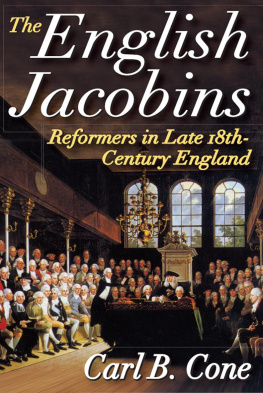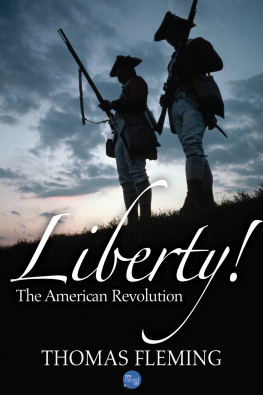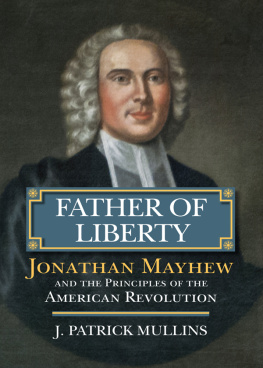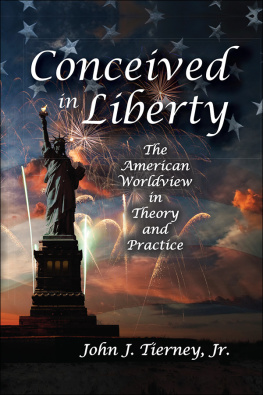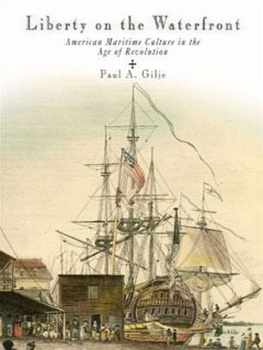LIBERTY AND EMPIRE


LIBERTY AND EMPIRE
British Radical Solutions to the American Problem
1774-1776

ROBERT E. TOOHEY

ISBN: 978-0-8131-5515-9
Library of Congress Catalog Card Number: 77-84068
Copyright 1978 by The University Press of Kentucky
A statewide cooperative scholarly publishing agency
serving Berea College, Centre College of Kentucky,
Eastern Kentucky University, The Filson Club,
Georgetown College, Kentucky Historical Society,
Kentucky State University, Morehead State University,
Murray State University, Northern Kentucky University,
Transylvania University, University of Kentucky,
University of Louisville, and Western Kentucky University.
Editorial and Sales Offices: Lexington, Kentucky 40506
To my mother
CONTENTS

PREFACE

DURING the critical two years between Parliaments passage of the Coercion Acts and the American Declaration of Independence the British governments American policy was bitterly opposed in Parliament by the Rockingham Whigs and William Pitt, earl of Chatham. Their arguments against the policy of the king and the North ministry formed the bases of a Whig Opposition which is well known to students of the American revolutionary period. During this time voices of dissent also were being heard from the ranks of a British Radicalism which had emerged in English affairs during the 1760s and early 1770s. This development, deemed Radicalism much later by nineteenth-century historians, was the offspring of a London-centered disenchantment with the old Whig ascendancy and fears that the court had ambitions to revive the power of the monarchy at Parliaments expense. Such apprehensions were fomented by the Wilkes affair and what seemed to be the governments calculated attempt to subvert the liberties of the American colonists. There was little unity among the various shades of this Radicalism, and it was unable to create an effective program of reform to prevent disaster in America. Yet among these groups were several individuals who had some extraordinary ideas about British affairs, including the American question, and whose thinking represented a wide range of British Radical opinion in and around London. These persons were able, informed, and innovative thinkers who, among other things, conceived some carefully planned alternatives to the governments American policy and to then current notions of liberty and empire. They presented their ideas to both English and American audiences in books and pamphlets published during the critical, decisive two years prior to the Declaration of Independence.
The five individuals whose ideas are described in this volume made some notable contributions to the great debate over America in 177476, and several historians of our own time have shown that these persons were prominent figures in the history of late eighteenth-century English Radicalism. My objective in these pages is to present a synthesis of these British Radicals ideas about the American crisis and to show that America did not possess a monopoly on men with innovative, enlightened concepts of liberty and empire.
Major John Cartwright urged a scheme of imperial reformation which foresaw the later British Commonwealth of Nations. Granville Sharps case for the legislative rights of both Ireland and America anticipated Victorian principles like responsible government or home rule. James Burgh wrote a classic argument for parliamentary reform in which the American question was deeply involved. Catharine Macauley made a grand appeal to the peoples of Great Britain and Ireland to stand with the Americans against a corrupt British government in a style that anticipated the republican fervor of the French Revolutions famous citizenesses. Dr. Richard Price wrote one of the periods most eloquent statements on human liberty and what the American Revolution was essentially about. Though their ideas were little understood or supported in the England of their time, they made important contributions to the emergence of late eighteenth century Radicalism in England and their influence on the Founding Fathers of the American Republic was by no means insignificant. The later history of the British Empire demonstrated that their ideas about liberty and empire on the eve of the American Revolution anticipated some important developments in the British world during the two hundred years after their own generation. Their ideas about America in the tense years of 177476 must be considered a notable and interesting part of the American revolutionary drama.
As the United States enters the third century of its existence I think that these extraordinary Englishmen whose enthusiasm for the American cause matched that of legendary American patriots ought to receive well-deserved attention from modern Anglo-American readers who recognize that the American Revolution was and continues to be a unique influence on the histories of peoples and institutions throughout the English-speaking world. Our own generation has good reason to be indebted to them and the principles they stood for.
Numerous historians, both British and American, during the past few decades have written books which show important connections between the emerging radicalisms in England and America early in the reign of King George III. These writers include Dora Mae Clark, Dame Lucy Sutherland, Caroline Robbins, Ian Christie, Bernard Bailyn, H. Trevor Colbourne, and Gordon S. Wood. They furnish evidence that the two radical movements shared notions about liberty, empire, and a corrupt English political system which seemed to be undermining the rights of the crowns subjects on both sides of the Atlantic. Anglo-American radical opinions combined to shape the ideological origins of the American Revolution and to sanction both colonial defiance of the British government and the cause of parliamentary reform in the mother country. It will be one of my purposes in this book to describe the climate of opinion about America in England during the 1770s and to show why a few British Radicals were drawn to publicize their ideas on the American crisissomething which contributed to both the American revolutionary experience and the origins of the parliamentary reform movement in late eighteenth-century England. This study describes the Radicals arguments so that it might be understood that they thought of the American question within the context of the eighteenth-century world in which they lived.
An important consideration in British and American radical displeasure with British politics in the 1770s was the complaint that the existing order had, in effect, betrayed the ideological principles of the Glorious Revolution of 1688. British Radicals called this betrayal corruption, while their American brethren called it tyranny. The established order accepted eighteenth-century ideas of a balanced government of the king, the Lords, and the Commons as integral parts of the sovereign Parliament acting for the best interests of Great Britain and its empire, the belief that such an order could and should be sustained by the oligarchy of the realms great landed families, and the patronage system which made the existing constitution work. It was an order of politics which clung to old mercantilist ideas about the empire and the authority of Parliament to uphold them.



